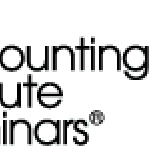- Settore: Accounting
- Number of terms: 7464
- Number of blossaries: 0
- Company Profile:
When an auditor is asked to audit and report on financial statements that have been previously audited and reported on.
Industry:Accounting
A document completed in the receiving department, which identifies the purchase order that initiated the purchase, and the date, quantity, and condition of goods received.
Industry:Accounting
A schedule establishing agreement between separate sources of information, such as accounting records reconciled with the financial statements.
Industry:Accounting
A statement submitted to officially provide the SEC with information about an offering of securities. A registration statement includes audited financial statements (balance sheet, income statement, and statement of cash flows) for the previous three years.
Industry:Accounting
A statistical method for finding the relationship between two or more variables. Also called least squares or linear regression.
Industry:Accounting
s-x is a regulation of the SEC that explains the format of information to be submitted to the SEC. It is entitled "Form and Content of and Requirements for Financial Statements, Securities Act of 1933, Securities Exchange Act of 1934, Public Utility Holding Company Act of 1935, Investment Company Act of 1940, and Energy Policy and Conservation Act of 1975."
Industry:Accounting
are those with whom the client has a relationship that might destroy the self-interest of one of the parties (accounting is based on measurement of arm's length transactions). Related parties include affiliates of the client, principle owners, management (decision makers who control business policy) and members of their immediate families.
Industry:Accounting
(reliability) Different audit evidence provides different degrees of assurance to the auditor. When evidence can be obtained from independent sources outside an entity, it provides greater assurance of reliability for an independent audit than that secured solely in the entity. More effective internal controls provide more assurance about reliability of the accounting data and financial statements. The independent auditor's direct personal knowledge, from physical examination, observation, computation, and inspection, is more persuasive than information obtained indirectly.
Industry:Accounting
